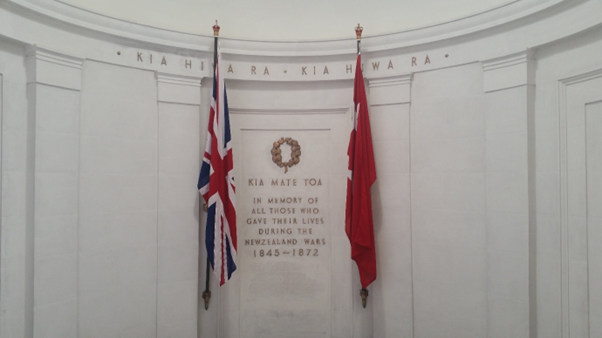An historically-aware Aotearoa
Anzac Day, marking the anniversary of the landing of Australian and New Zealand troops on the Gallipoli Peninsula on 25 April 1915, is nearly upon us. It has long been a day for many New Zealanders to reflect on their country’s involvement in wars, and the sacrifice of those who served. But until recently the wars commemorated were exclusively foreign ones, and not those fought closer to home, here on Aotearoa’s own shores.
In recent years that has begun to change, as many people also come to learn about and acknowledge the nineteenth-century New Zealand Wars fought between the Crown and various Māori communities between 1843 and 1872 – defining conflicts for land and sovereignty whose consequences continue to be felt today in multiple ways.
How Pākehā New Zealanders have engaged with this ‘difficult’ history has undergone radical transformation since the last shots were fired. In the early twentieth century a burst of nostalgia for the pioneering period saw the New Zealand Wars re-framed as chivalrous and heroic conflicts between two worthy foes. In this mythologised version of the wars, mutual respect forged on the battlefield sowed the seeds for future harmony. New Zealand had the ‘best race relations in the world’ because of these wars, so the story went. Many of the fiftieth anniversary events held during this period were even described as ‘celebrations’. That imagined narrative, reflected in films, books, and elsewhere, endured for much of the twentieth century.

A similar approach was still evident in the 1960s, when the centenary of many of the major conflicts were commemorated. But the dominant Pākehā version of this history had never been widely shared by Māori. It was hard to feel nostalgic about events from the past where your own ancestors had been killed, your lands taken, your economy destroyed and future generations condemned to lives of poverty as a result. While Pākehā publicly celebrated, many Māori continued to privately grieve.
By the 1970s more forceful Māori voices, combined with powerful revisionist accounts of this history, had all but discredited the dominant Pākehā interpretation of the past. It was no longer acceptable to celebrate the New Zealand Wars. The problem was that no new narrative of the wars emerged, or at least none that gained widespread Pākehā acceptance, and so we were left with a kind of uncomfortable silence. When that was challenged in various ways significant controversy arose. From the perspective of many Pākehā, it was easier just to forget the New Zealand Wars had ever happened.